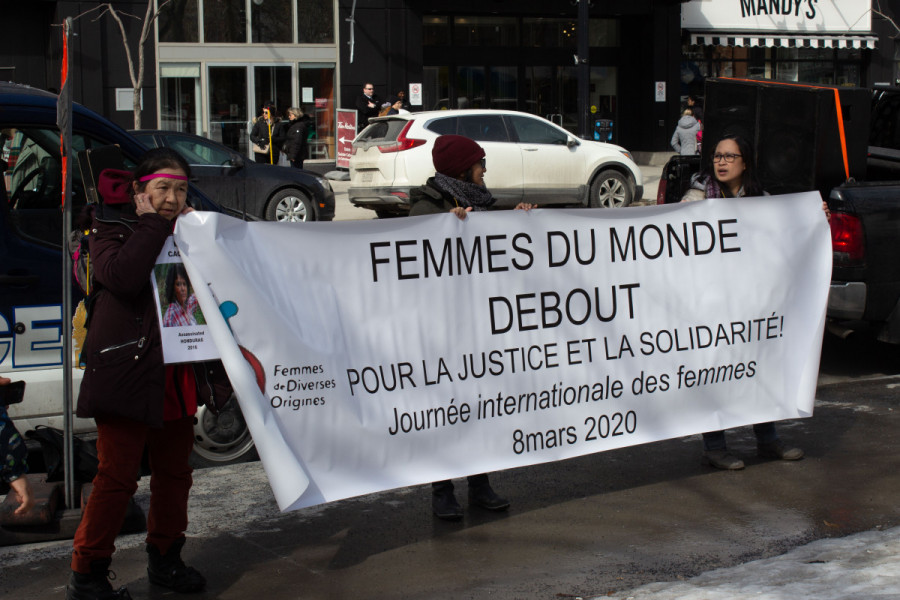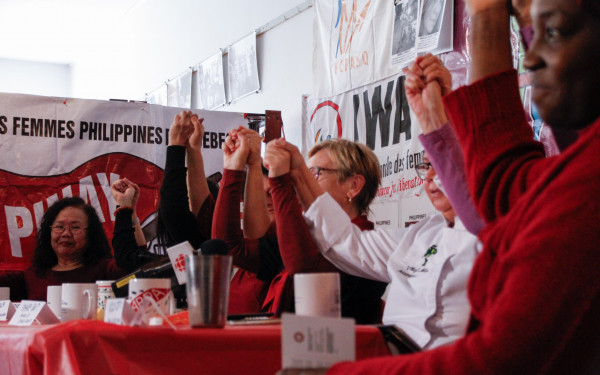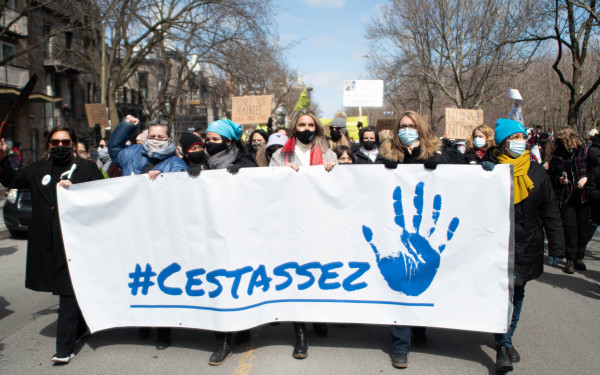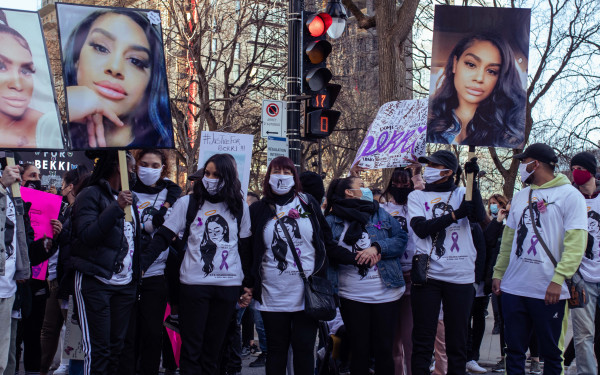International Women’s Day March Takes Over Cabot Square
“Women United Will Never Be Defeated!”
This International Women’s Day, Women of Diverse Origins organized the annual women’s march, something they have done since 2002.
Hundreds of people flooded Cabot Square, brandishing brightly coloured posters and flags from their home countries.
Protests identical to this one happen globally on International Women’s Day, and serves to remind the public that the fight for equality is not over yet.
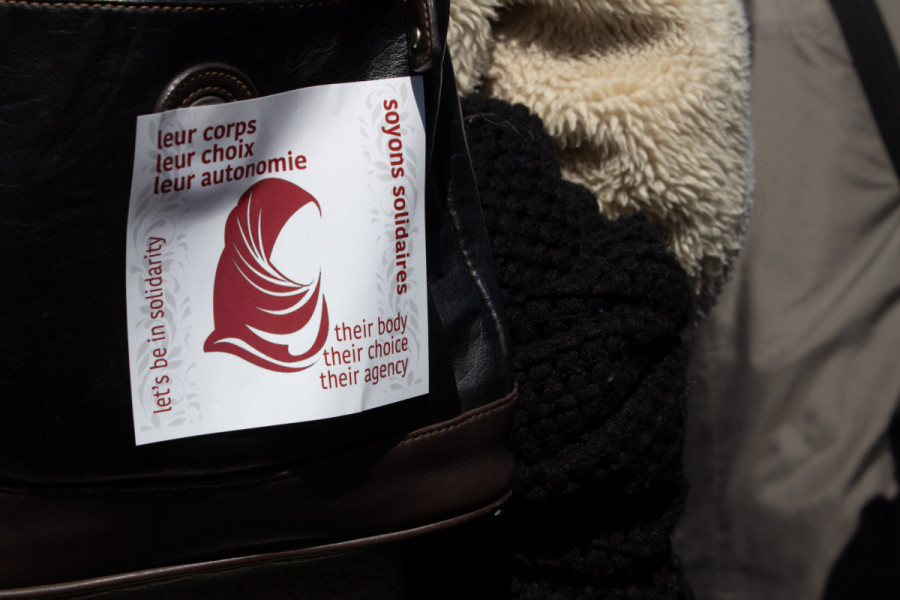
Nima Machouf, from the Association des femmes iraniennes de Montréal, spoke on women’s growing involvement in Iran’s public sphere. “The women are the ones in university, in the workforce, and at the protests,” she said.
Several women have been imprisoned in Iran for protesting the country’s mandatory veil law. They protest to abolish the law to make the veil voluntary, not compulsory.
“It should be a choice,” said Machouf. “If they want to wear the veil, they can, and if they don’t, they shouldn’t.”
“We’re all in the same boat,” said Claudia Martinez from Chili en résistance jusqu’à la dignité.
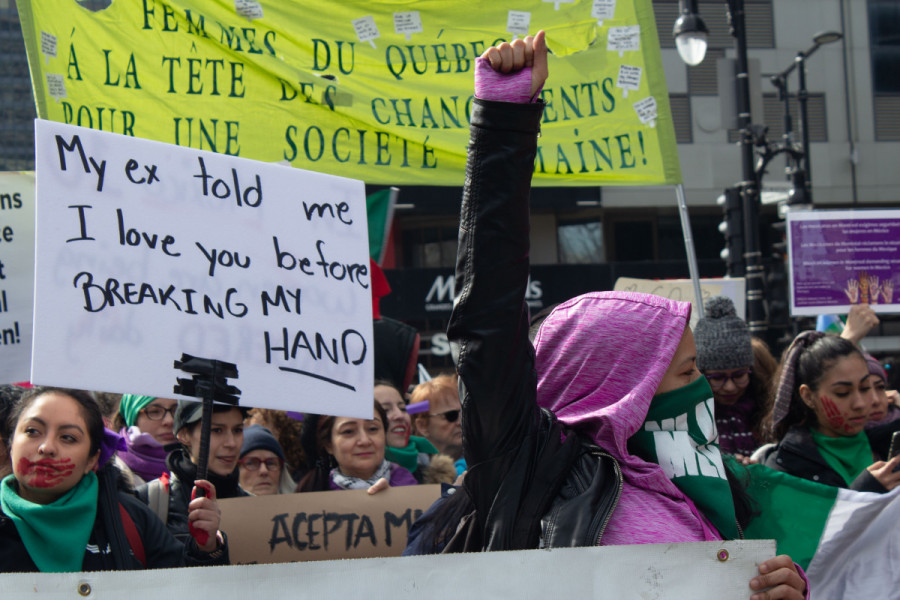
Each organization represented at the march—though from different corners of the world—had more things in common than one might expect. Women from Venezuela, Chile, Iran, Palestine, Lebanon, the Philippines, Mexico, and members of various Indigenous communities marched together.
While their struggles might not look the same, they stand united and in solidarity with one another, said Marlene Hale, member of the Wet’suwet’en nation.
“We have shut down Canada,” Hale said, referring to the wave of solidarity protests and train blockades calling attention to Wet’suwet’en land being used for the Trans Mountain Pipeline.

Protesters chanted “So-so-so, solidarité, avec, avec, avec la Palestine,” and “Women united will never be defeated.”
Chilean women wore ornate masks, covering their entire heads with red fabric and brightly coloured beads. Led by Martinez, they performed a dance called “There’s Violence on Your Street.” They chanted as they stuck their arms forward, pointing at the metaphorical people oppressing them.
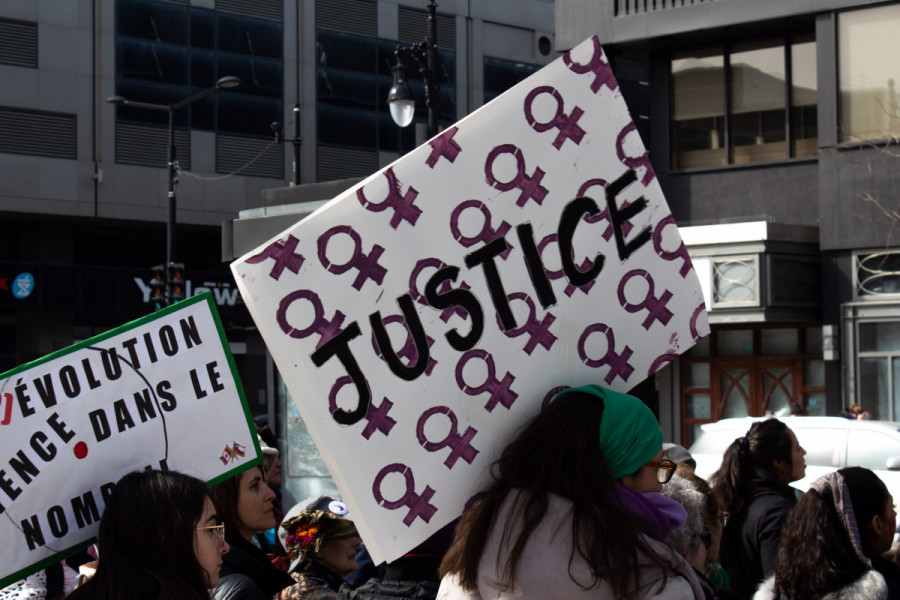
Benedicte Carole Ze, from the Association des travailleurs et travailleuses d’agences de placement, spoke on the unjust working conditions she faced after first immigrating from Cameroon to Montreal. She regularly worked 10 to 12 hour days, doing the jobs of three people at once. After two years of working without time off, her request for two weeks vacation was denied.
“If we’re good enough to work, we’re good enough to stay,” she said, about the numerous temporary workers who come to Montreal hoping to start a life here.
“Our women are dying […] because of our present regime,” said Thelma Castro, founder of PINAY, a Filipino women’s organization.
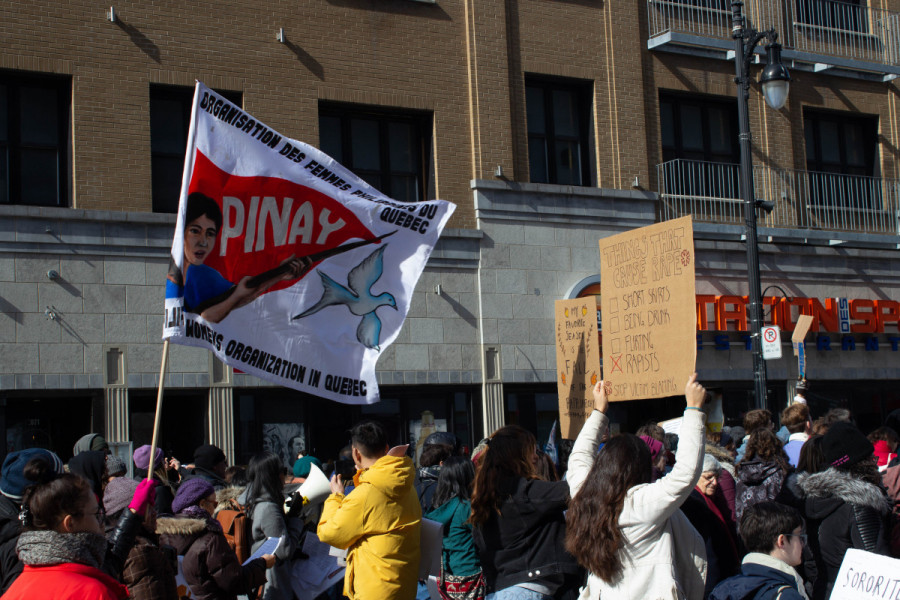
The president of the Philippines, Rodrigo Duterte, has urged members of the public to kill people addicted to drugs to control the country’s drug problem. According to Castro, he’s doing more than just that—he’s killing the country’s activists as well.
“The defenders of human rights, women activists, lawyers, and anybody who is working with the people are either jailed, disappeared, or harassed.”
These women and their families leave the Philippines to escape the hostile situation there, only to be racially profiled when they arrive in Canada, explained Castro.
After departing from Cabot Square, protesters stopped in front of the Royal Canadian Mounted Police’s office before moving to the Israeli consulate. From there, protesters marched down Ste. Catherine with music blasting from speakers propped up in the back of a pick-up truck.

